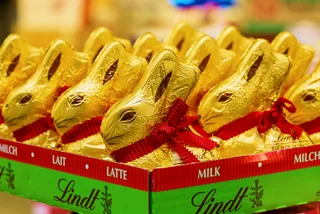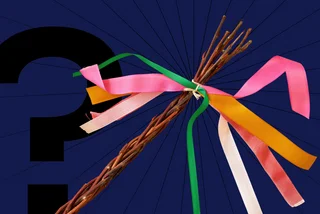Organized by the Czech-Japanese Association (CJA), in cooperation with the Japanese Embassy in Prague and other local partners, EIGA-SAI – straightforwardly, “movie festival” – is holding its 17th edition this week, offering a carefully curated selection of contemporary movies from the Land of the Rising Sun in the beautiful halls of Kino Lucerna.
In addition to the appealing film offer, EIGA-SAI is also organizing a host of accompanying events throughout the week and well into spring to present local culture in all its richness and diversity. Highlights include a Japanese photo exhibition and Japanese Cultural Day on March 2.
PARTNER ARTICLE
The long-running festival aims to build bridges between Czech and Japanese cultures and showcase universal topics and struggles that everyone, regardless of age, nationality, or background, can relate to, CJA president Ondřej Hýbl tells us.

After graduating in Japanese studies from Charles University in Prague, Ondřej pursued his dreams in Kyoto and Osaka, calling Japan his home for over a decade. Now dividing his time between Prague and Kyoto, he works as a translator, interpreter, and occasional lecturer on top of his pro-bono work as head of the Czech-Japanese Association.
As diverse as they may be, Ondřej’s activities follow the consistent goal of fostering a better understanding between Czech and Japanese people, culture, and traditions and helping Japanese expats better integrate in order when all is said and done to have fun and enjoy their stay in Prague.
Czechia's Japanese population
Japan has been one of the top foreign investors in the Czech Republic since the Velvet Revolution, and as a result, between 2,500 and 3,000 Japanese citizens live in the country today. Many are either students or managers – expatriating with their families – employed in the numerous Japanese-owned companies established in the country.
There are vast cultural differences between the two nations, and many Japanese experience a huge culture shock when moving here,” Ondřej explains.
Ondřej regularly organizes cultural management workshops and sessions in some companies to mediate the sometimes-delicate communication between Japanese and Czechs.
“When given a task to do by their superiors, Japanese workers’ main concern will be to know when it has to be finished,” he gives an example. “Czechs, on the other hand, will commonly ask why they should do this task in the first place.”
In a work environment, he notes that Czechs and Japanese tend to be reserved and not express their thoughts openly. While this shared shyness may initially complicate communication, it could eventually reveal underlying similarities, suggesting that they might have more in common beneath the surface than it appears.
Japanese culture events in Prague
- EIGA-SAI festival: Opening Feb. 26, the film Forever Together opens the festival. Not part of the official program, Pledge to Megumi, screening next Sunday in Lucerna, tells the true story of 13-year-old Megumi Yokota’s abduction to North Korea.
- Photo exhibition: Pieces of Japan opens at Lucerna Café and showcases the work of Czech photographer Zdeněk Thoma's experiences in Asia.
- Japanese cultural day: Origami and calligraphy workshops, Japanese swordplay demonstrations, Japanese delicacies and handicrafts, clothing, and dance and musical performances on March 2.
- Kyógen performance: On April 15 catch a unique theatrical performance featuring celebrated actor Motohiko Shigeyama (In Czech and Japanese).
- Hanami picnic: A late April picnic organized by the Czech-Japanese Association celebrates Sakura, Japan’s cherry blossoms, and the arrival of spring.
Japanese food and culture in Prague
Based on his experience, other potent cultural differences experienced by Japanese living in Prague relate to the local drivers’ fast and furious driving, the local trains’ not-so-fast and not-so-furious tempo, the lack of hot springs culture, and, of course, the acquired taste for Czech cuisine.
When it comes to food, Prague, thankfully, has its fair share of high-quality venues for those craving Japanese cuisine. In recent years, local foodies and homesick Japanese expats alike have been spoiled for choice with Japanese-style fluffy pancakes, mochi, gyoza, bento boxes, ramen, and even Japanese ice cream turning up on menus.
Asked about his favorite spots, Ondřej doesn’t hesitate: “I should probably call ahead and ask for a sponsorship for saying this, but my tips would be the Yamato restaurant in Vinohrady, helmed by a Czech master chef in sushi-making, and Katsura, located on the premises of the Diplomat Hotel.”
During his time in Japan, Ondřej worked for years to master the art of Kyógen comic theatre, an ancestral Japanese theatrical farce genre which he has, since his return to his native country, been introducing to Czech and international audiences.
“Traditional Kyógen theatre is a genius portrayal of the universality of humor and human stupidity,” he says, highlighting its original purpose of entertaining samurais and the educated elite in ancient Japan. As a rare non-Japanese in this traditional field, he shares his unique perspective by organizing Kyógen performances in Prague based on Czech-language texts he translated.
Recently, he conducted a workshop on Japan’s traditional theatre for children enrolled in Prague's Japanese School. Ondřej's efforts showcase the universal appeal of Kyógen, making Czechia possibly one of the few places outside Japan where translated plays are performed.
A first of its kind, a bilingual Czech-Japanese Kyógen performance will be held on April 15 with celebrated actor Motohiko Shigeyama. Ondřej and his fellow theatrical pranksters will also have several stage performances as part of the EIGA-SAI festival.
If this week’s events leave you wanting more, follow the Czech-Japanese Association and its partners. Among other planned activities, a Hanami picnic will take place in Prague at the end of April as part of the annual celebration of Sakura, Japan’s world-famous cherry blossom, and the arrival of springtime.
Running for the entire week from Feb. 26 to March 3, the EIGA-SAI tickets can be purchased for CZK 120-150, and all screenings have Czech and English subtitles.












 Reading time: 4 minutes
Reading time: 4 minutes 

























